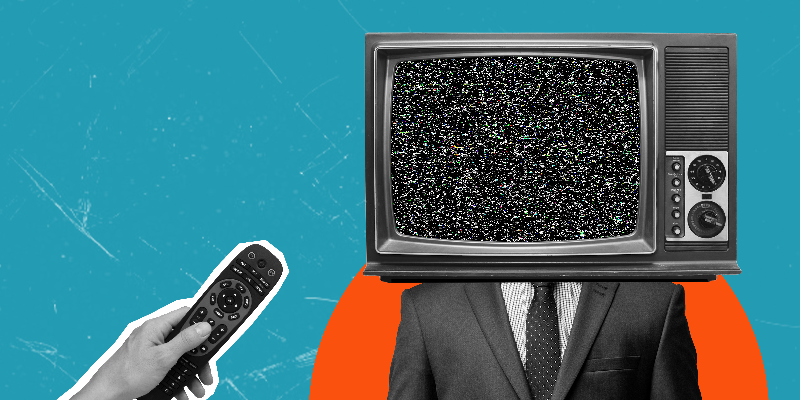

In spite of the exponential increase in the digital marketing mediums, television commercials
(TVCs) continue to be one of the bastions of brand strategy by most large-scale firms. In a
world increasingly dominated by YouTube, Instagram, and OTT platforms, you might wonder—does TV
advertising work anymore? In the short run, the answer is yes. Actually, TV is not only relevant
but also very influential in the case of many large brands.
Let’s dive into why TVC advertising continues to draw major investment, what keeps it impactful in the digital age, and answer the key question on every marketer’s mind: Is TV advertising effective?
sible and targeted—even for newer audiences. For brands aiming at cultural relevance, long-term memory, and national reach, TV still plays a vital role in 2025 and beyond.The main strength of TV advertising is that it has unmatched coverage. TV is, unlike digital, where there is certain segmentation of people based on algorithms and behavior, a large and diverse audience in real time. And when a company has the desire to pierce the roof of a nation, not many media provide such a blast in a big moment, instantaneously.
As an illustration, when there is some event, such as a national news time, a festival, or a cricket match, millions of people watch it at once. At such times, does TV advertising work? Absolutely. Just one ad placed at prime time can already reach entire households within a stratum of the socio-economic classes, and its potential is difficult to emulate by digital ads with their targeting capabilities unless it is applied on a mass scale.

Television offers the luxury of storytelling in a rich, high-quality audio-visual format. From emotional narratives to humorous scripts, TVCs create memorable brand moments. Brands like Coca-Cola, Amul, and Surf Excel have used this storytelling power for decades to build lasting relationships with consumers.
So, is TV advertising effective when it comes to emotional engagement? Research consistently shows that TV ads outperform digital ads in memory recall and emotional resonance. A well-made TVC has the power to linger in a viewer's mind long after it airs.
One more factor which makes TV advertising popular among large brands is the prestige and credibility they get with the help of it. Advertising on television- particularly on a popular channel or at prime time- gives an indication of a brand that has reached maturity and can be trusted.
So does TV advertising work for brand perception? Yes. Television is a credible media in most markets. TV remains the main source of information and entertainment to some demographics, most prominently including the 35 and over population. This trust has a direct relationship in which it makes a viewer perceive a brand, he sees on TV.
TV works best when integrated with other forms of advertising. In fact, studies show that multichannel campaigns that include TV often outperform those that rely solely on digital media. For example, if a brand launches a new product with a high-impact TVC and supports it with social media campaigns, the combined effect tends to drive stronger results.
Is TV advertising effective in driving website traffic or app installs? While not as direct as digital ads, the answer is still yes—especially when used as part of an omnichannel strategy. TV creates the top-of-the-funnel brand awareness that encourages search, consideration, and eventual purchase.

Whereas there is an increased usage of phones by younger generations, the television continues to attract massive audiences among the Gen X and Baby Boomers, who are age groups with huge buying power. TV remains one of the integral parts of the everyday life of many households, even in urban places.
So does TV advertising work when targeting older or family-oriented audiences? That is very much the case. These viewers fit in well as a target for whether the products being advertised are FMCG products, cars, or even real estate, among many others, as they have a higher tendency of buying on the basis of brand trust.
TV advertising is not obsolete as many seem to believe. Due to the rise of smart television and connected television (CTV), there are now more ad placement, targeting, and even engagement capabilities that brands can take advantage of. In certain situations, advertisers are given options to purchase slots based on the regions, interests, and even household behaviors.
This evolution is reshaping the narrative around is TV advertising is effective. It is not a matter of a scatter-gun approach anymore. TV advertisements are now smarter, sharper, and can even be tracked; assisting the brands in informed decision making regarding their investments in media.

We will take some examples. Firms such as Apple, Samsung, and Hyundai spend huge budgets on television advertising during the launch of new products. Why? Since they understand that it creates anticipation, exposure, and mainstream credibility.
Luxury brands are basing their TV use not specifically on the goal to generate instant sales, but they are trying to cement their status of eliteness. This is where the high production quality and prestige of TV. And in case of consumer brands such as Britannia or Colgate, TV advertisement is used to maintain memory over a long-term period.
So again—does TV advertising work for big brands? They do not only hazard their budgets. They are evidence-based decisions that have had decades of successful ROI.
To run a powerful TVC marketing campaign, research, ingenuity, and psychology of the viewers are needed. That’s where a professional TVC Advertising agency comes in. Senior agencies have a lot to offer, including scripting, casting, media purchasing, and tracking performance.
If you’re a growing business in India looking to scale through TV, partnering with a seasoned Advertising agency in Bangalore could be your first step toward replicating the success big brands enjoy.

Let’s summarize. Is TV advertising effective? Yes--and not because of one reason only. It continues to become a platform that goes to millions, with emotional appeal, brand credibility, and supplementing the digital activity. Does TV advertising work for newer audiences? The answer is becoming yes with the use of modern technology and more intelligent media planning.
Although it is necessary to embrace the change in consumer behavior, TV is always a significant element in the marketing process, particularly in the case of a brand that is willing to gain national exposure, create long-lasting effects, and be relevant culturally.